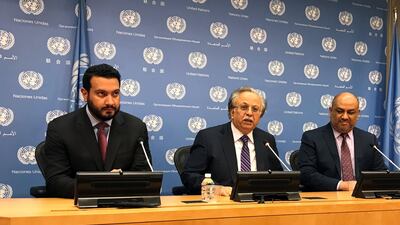Saudi royal family members, officials and businessmen arrested in an anti-corruption crackdown this month will be granted due process, Saudi Arabia's UN ambassador Abdallah Al Mouallimi said.
Authorities have detained dozens of senior Saudis, including billionaire Prince Alwaleed bin Talal, in an anti-corruption investigation that the government said was part of larger efforts to ensure transparency, openness, accountability and good governance.
Those held face accusations of money laundering, extortion, bribery and exploiting public office for personal gain. A Saudi anti-corruption committee has been given the power to seize companies' funds and other assets before criminal inquiries begin.
"I can assure you there will be due process for anybody who is detained," Mr Al Mouallimi said at the United Nations.
When asked how many people had been detained, he said: "I do not have a figure to share with you. This is something that the security authorities will announce in due course."
_____________
Read more
Saudi Arabia arrests princes, ministers and businessmen in anti-corruption crackdown
New Saudi committee to investigate public corruption opens 'new era of transparency'
_____________
US president Donald Trump has endorsed the effort, saying some of those arrested have been "milking" Saudi Arabia for years, and the US state department has urged Riyadh to carry out prosecutions in a "fair and transparent" manner.
Crown Prince Mohammed bin Salman warned earlier this year that anyone guilty of corruption would be punished.
"No one is above the law whether it is a prince or a minister," he said in a television interview.

